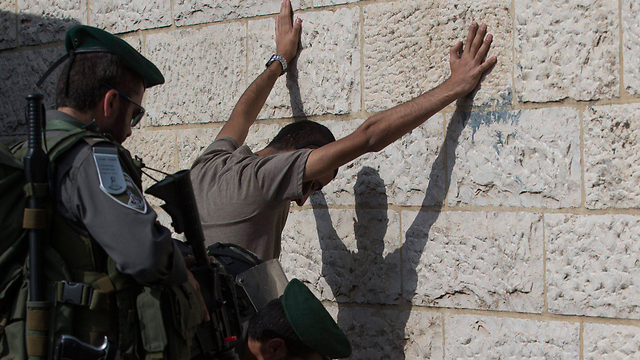'Frisking bill' on path to approval
Knesset committee votes 7-6 in favor of passing bill on for final approval; bill would permit police to search people's bodies if they suspect they are about to commit violent acts.
The Knesset Constitution, Law and Justice Committee on Monday approved for second and third readings the so-called Frisking Bill, which would allow police to search a suspect's person if there is reasonable suspicion of an imminent violent act. The proposal is expected to be put up for a vote in a Knesset plenum later Monday. Seven MKs supported the bill, while six opposed it.
Passing the bill would entail a significant expansion of the police's authority to conduct a body search of anyone suspected of imminently committing a violent act. It has drawn fire from the opposition, which argued that it would endanger human rights and permit harassment of particular groups because of their appearance, regardless of whether there is any suggestion that they have violent intent.
"There is a near-total consensus regarding prevention of terrorist acts," said MK Yael German (Yesh Atid), "and there is resistance to the police's ability to search teenagers and youths based on the accepted custom that we have seen for years. There will be racial profiling and they'll harass Arabs, Ethiopians, those who appear Mizrahi, and then Russians."
In contrast, committee chairman MK Nissan Slomiansky (Bayit Yehudi) said he was satisfied when the committee approved the bill. "We succeeded in expanding the police's ability to conduct a search and thus dramatically changed its ability to act." He noted that the original version of the bill had not called for any probable cause and that the "reasonable suspicion" requirement was an addition addressing concerns raised by opponents of the bill.
"We found a compromise according to which one the one hand, we are giving the police power to fight violence, and on the other hand, we are protecting human dignity and there will therefore be no search unless there is suspicion of carrying weapons," said MK Smoliansky. The requirement of a "reasonable suspicion" was added in order to address human rights concerns, he said.











